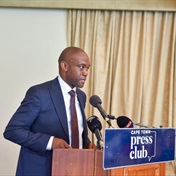When the first Boers settled in the Wolkberg area and in the lowveld in the Letaba area, they formed commando units for security and to maintain peace and order.
They were part of the greater Soutpansberg district with Commandant Swart Barend Vorster as their leader.
They were all republicans and strong supporters of the South African Republic (ZAR) government.
The commandos of Houtboschberg and Letaba were made part of the Spelonken ward, with JA Breedt as their veldkornet.
Soon, the main cause for friction between the BaTlou (Makgobas), the BaLobedu (Modjadjis) and a few other, smaller tribes in this area and the Boers became the land issue.
Eventually, the ZAR government in Pretoria decided to regulate land ownership by making laws to separate white and black.
In 1882, the government appointed a Native Location Commission to decide which tribes should be recognised as separate, and where the boundaries of their land should be.
Where necessary, especially if there was a dispute between black and white about land, the commission recommended whether or not these tribes should then be moved to another location.
Makgoba was a strong-minded man, and resisted the Boers. Because of the serious differences between the white settlers and Makgoba about land, the BaTlou were one of the tribes who, according to the commission, should be moved.
Makgoba’s people couldn’t and wouldn’t agree with the government’s decision to move them to a location south of the Great Letaba River, about 20 kilometres away.
It should be understood that ever since the Transvaal became recognised as an independent republic (the South African Republic, or ZAR) in 1852 and the boundaries of this republic were defined and recognised by other countries, the government in Pretoria regarded all the black tribes within these boundaries as subordinate to them.
In 1885, the ZAR government decided to change the boundaries of the wards. A new ward was cut off from ward Spelonken.
Houtboschberg and Letaba now constituted a new ward – known as Houtboschberg ward – with Hendrik Willem Alberts as the veldkornet and Frikkie Botha as the assistant veldkornet.
The boundary between Spelonken and Houtboschberg wards was the Middle and Klein Letaba rivers.
Because of further friction and clashes, the government in 1886 proclaimed a law, known as the Occupation Farms Act, which made it possible for white farmers to obtain farms, free of charge, as long as they occupied them.
The reason for this was to create a buffer zone between black and white.
The chiefs complained that it was their land that was being given to white farmers. Some of them refused to be herded together in locations.
The area where the Makgobas stayed was in the area demarcated for the buffer zone.
As I already told you, they refused to be moved. More and more white farmers moved in. When the government introduced a tax system, that caused more anger.
The first open trouble came in 1888 when the government attempted to carry out the location policy, as proposed by the Native Location Commission of 1882.
When the government officials began to erect beacons (piles of stones known as cairns) to mark the positions of white farms in the territory of Kgoshi Makgoba, his people destroyed the beacons and threatened the officials of the commission.
In response, the government imposed a fine of a number of cattle, which Makgoba was supposed to pay.
For weeks, Makgoba negotiated with the Native Commissioner for Soutpansberg, Oscar Dahl of Fort Klipdam near Pietersburg.
They could not reach a solution to the dilemma. Makgoba refused to pay the fine, and was therefore arrested and held in prison at Fort Klipdam.
A delegation was ordered to go and seize the cattle.
This was done but, in the meantime, Makgoba escaped by digging a hole under the wall of his cell. He returned to the BaTlou and swore that the white people would never again capture him.
Not far from Makgoba, the legendary Rain Queen, Modjadji of the BaLobedu, now also refused to allow the location policy to be applied in her territory.
For some time, she had refused to allow tax to be collected in her area.
When the government threatened to punish her, she retaliated by threatening to kill all Christians in her territory – the converts of Reverend Reuter of Medingen Mission.
The government, in applying forced removals in the early 1890s, distinguished between tribes bigger than 500 families and those that were smaller.
The bigger tribes like the BaLobedu of Modjadji, the Mamabolo, the Mmamathola and the Malepos were given their own locations.
The smaller tribes with less than 500 families – Tsolobolo, Maupa, Mosote and Makgoba – were supposed to move to one location south of the Great Letaba River, where they would be subordinate to Mmamathola, whose territory it was.
Makgoba did not want to be subordinate to Mmamathola. He told the commissioner that if he had to be moved, he would prefer the Malepo location, because they were related to the Malepos. His request was not granted.
- To buy the book, ask your nearest bookseller to order a copy if they do not stock the series, or contact the publishers at info@saheritagepublishers.co.za
- For a full list of titles in the series, visit saheritagepublishers.co.za
- For updates and more information, follow Our Story on Facebook at facebook.com/ancestorstories or on Twitter at @saheritagepub
WIN!
To win an exclusive box set of the first 14 Our Story titles, valued at R2 500, SMS us on 34217 using the keyword HERITAGE14.
Include your name, surname, email address and the answer to the following question: Where was Makgoba held prisoner?
Congratulations to last week’s winner, Andre Balutto from Edenvale. ANSWER: Yebo




 Publications
Publications
 Partners
Partners























